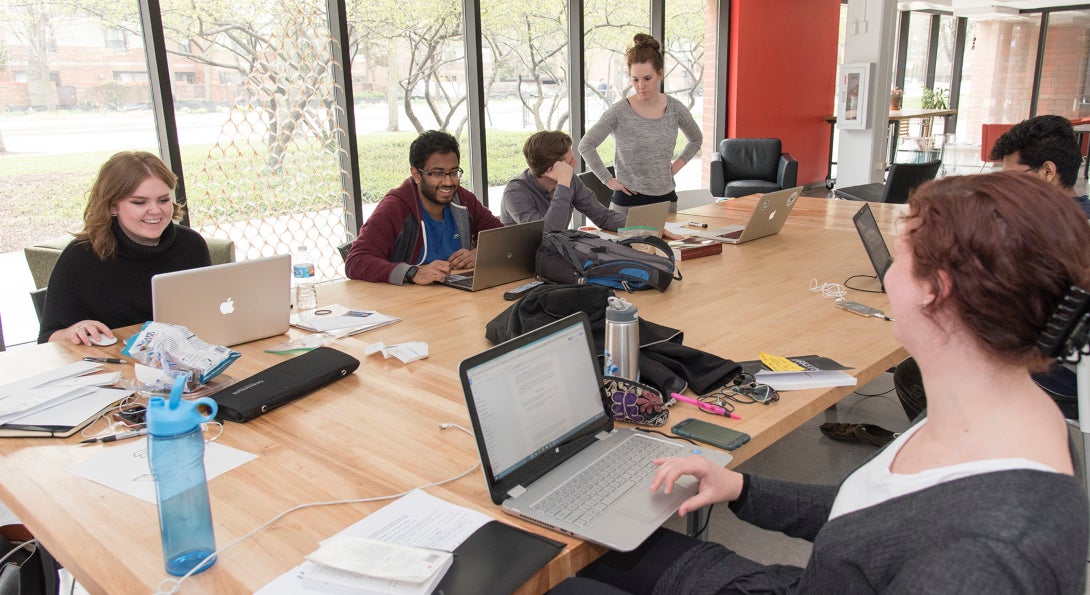Interdisciplinary Product Development Course Focuses on Emergency Care

Register for the online course HPA 494 Interdisciplinary Product Development (CRN 28465) to be an innovative agent of change.
Story text
What if a hospital system could reach its patients digitally before health and wellness worsens to prompt a hospital visit? That’s the year-long question at play in UIC’s Interdisciplinary Product Development course, a full-year course bringing together students from UIC’s College of Engineering, College of Business, College of Architecture, Design and the Arts and the School of Public Health. These students will build innovative digital tools for the Order of Saint Francis Hospital System (OSF), a healthcare group with 13 hospitals across the Chicago suburbs, central and western Illinois.
“Most healthcare systems are focused on treatment options, but here we have students creating solutions that address upstream factors before patients get to the hospital,” said Kee Chan, PhD, clinical assistant professor of health policy and administration at the School of Public Health. “We’re looking at an integration between public health and healthcare, at tipping points.”
This year’s course (HPA 494) examines how digital tools can reduce emergency room admissions for patients with ambulatory care sensitive conditions (ACSC) in the Chicago suburb of Evergreen Park, an area served by OSF’s Little Company of Mary Medical Center. ACSC represent preventable hospitalizations, conditions that can be addressed with timely and effective primary or outpatient care.
Specifically, the product development team will design solutions to strengthen OSF’s capacity to:
- Encourage healthy behaviors in Heart Failure patients
- Engage COPD patients on their conditions
- Find underserved users to promote higher breast cancer screening rates
- Promote more healthful environments to lower rates of pediatric asthma exacerbations?
- Help Diabetes patients better manage their conditions?
This year’s focus builds on the work of the 2019-20 product development team, which addressed social determinants of health affecting hospitalizations, including homelessness, food insecurity, substance abuse, public transportation access and workforce development.
“If you really want to create solutions that make impactful results, you need to think about the financial aspects, how we make great programs available,” Chan said. “We’re introducing business themes so we can go beyond creating a program for the community and make it sustainable.”
Each subset of students brings particular skills to the project: engineering students offer mechanical and technical skills to establish design feasibility, design students create functional products for specific audiences, public health students analyze population and community health needs and business students strengthen financial sustainability of tools created.
The fall semester is focused on honing the project deliverables. Students pitch concepts in a “Shark Tank” setting to OSF representatives multiple times throughout the semester, culminating in a final pitch at the end of the semester. During the spring, students set about developing the products, building wireframes and systems architecture. At the conclusion, OSF evaluates the demos and chooses which projects to financially invest in.